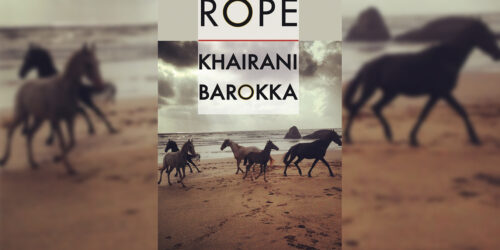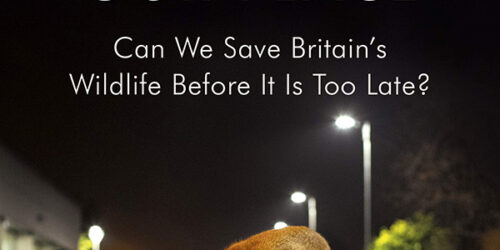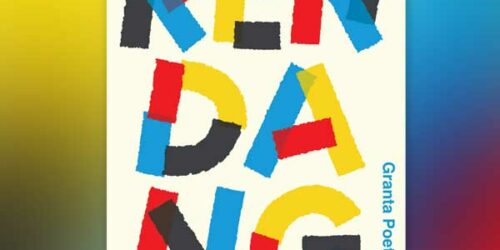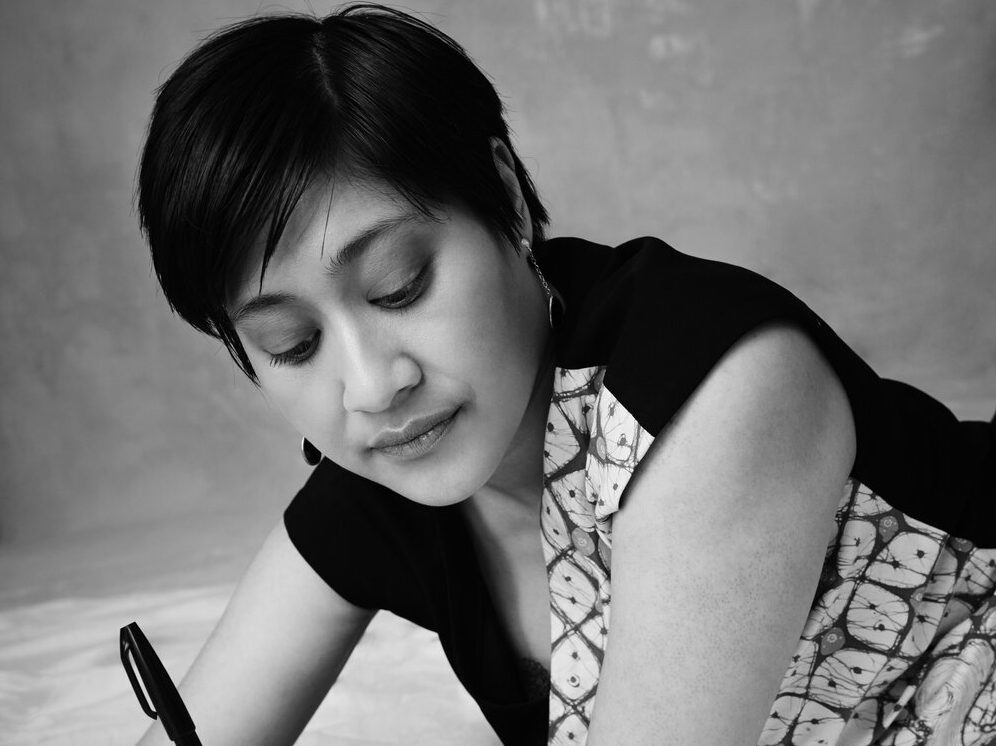
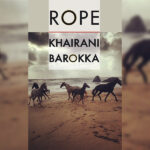 Over February and March, our (virtual) NCW Book Club is Rope by Khairani Barokka. We hope you’ll join us in reading the book, and that you’ll join the discussion in our Discord community or one of our Zoom discussion sessions.
Over February and March, our (virtual) NCW Book Club is Rope by Khairani Barokka. We hope you’ll join us in reading the book, and that you’ll join the discussion in our Discord community or one of our Zoom discussion sessions.
In the meantime, here are some questions that you might like to consider or discuss with friends, family and fellow members of the Book Club as you make your way through the book.
We’d love to hear your thoughts on Rope, and any other questions that the book sparks for you. See our post here to find out about all the different ways you can get involved.
Members of the Book Club can purchase Rope with a 10% discount from our friends at The Book Hive – and there’s still plenty of time to read along with us!
Happy reading!
Reading poetry
This is the second book of poetry we have read together for the Book Club (see here for more on RENDANG by Will Harris). What similarities and differences can you find between Rope and RENDANG, or between Rope and another book of poetry that you have read? Think about the topics, poetic technique, voice, and the balance of lyric and narrative impulses in the two books.
Let’s look at some of the prose poems in the collection, for example ‘Swimming’, ‘Temple of Literature, Hanoi’, ‘Chef de cuisine’, ‘Artist Statement’. Does reading prose poems feel different in any way to reading the poems with line breaks? How does it compare to reading prose fiction or prose non-fiction? What, for you, are the differences and similarities between prose poems and other types of writing?
Look up the definition of the word ‘ballad’. Does this change your understanding of ‘Balada Gayung / Ballad of a Water Dipper’? Would you describe this poem as a ballad? What makes it a ballad and/or what makes it different from a ballad?
Read or reread one of the poems silently, then out loud. Do you notice any differences in the pace, rhythm, rhyme and sound of the words? Repeat this experiment with the same poem, and then with different poems from the collection. What new meanings can you find?
Themes
What associations does the title spark for you? Why do you think Khairani Barokka has chosen this title, and how does it connect with the themes of the book?
Rope takes up questions of environment, gender, culture and relationships. How do you feel Khairani Barokka addresses these various themes? Do you feel that you can draw a clear line between poems that are about the environment, those that are about gender, etc.? Do these lines stay fixed throughout the book, or are there any poems that blur them? If so, why might this be, and how does Khairani Barokka achieve writing about multiple themes in a single poem? Do you find it successful?
Travel and place are key themes to the book. What different kinds of travel can you identify in the poems? How does Khairani Barokka write about them, and what different effects might she be trying to create? How do you feel about how travel is presented in the poems, as a reader?
‘Tsunami Pilgrims’ begins: ‘We seek out pain in lurid glimpses –‘. How would you describe the act of looking in Rope? Is there a visual quality to the poems, and if so, how does this come through?
The ‘who’ of the poem
Khairani Barokka plunges us into multiple different bodies in the poems of Rope. How does she orientate us within each poem? What techniques and details does she use to indicate place, time, and who is speaking? What are the different worlds and/or experiences of the world that are presented to us in the book?
‘Poetry to Self’ is addressed from a lyric ‘I’ to a ‘you’. How would you describe the relationship between these two people? What understanding of the poem does the title give you? Who do you think the ‘I’ and the ‘you’ might be? How is this different to ‘Flood Season, Jakarta’, which uses the pronoun ‘we’?
Some of the poems in Rope do not use these pronouns or have a clear speaker or subject – ‘Pool’, ‘The length and breadth of space’ and certain sections of ‘Meteorology’, for example. What effect does this impersonal style create? Do they sound or feel different to other poems in the collection?
Are there any other key themes, topics and issues that you can identify in the book?
Discover more poetry by Kharani Barokka…
Join Khairani Barokka plus guest writers Vahni Capildeo, Rishi Dastidar, and Fitri Nganthi Wani, with translation by Eliza Vitri Handayani, to celebrate the publication of her second poetry collection, Ultimatum Orangutan. Book tickets here >>
You may also like...
NCW Book Club: Rope by Khairani Barokka
Join us and share your passion for reading

5th February 2021
NCW Book Club: Our Place by Mark Cocker
Join us and share your passion for reading

5th November 2020
Book Club: RENDANG by Will Harris
Flo Reynolds introduces our latest Book Club read

17th September 2020



